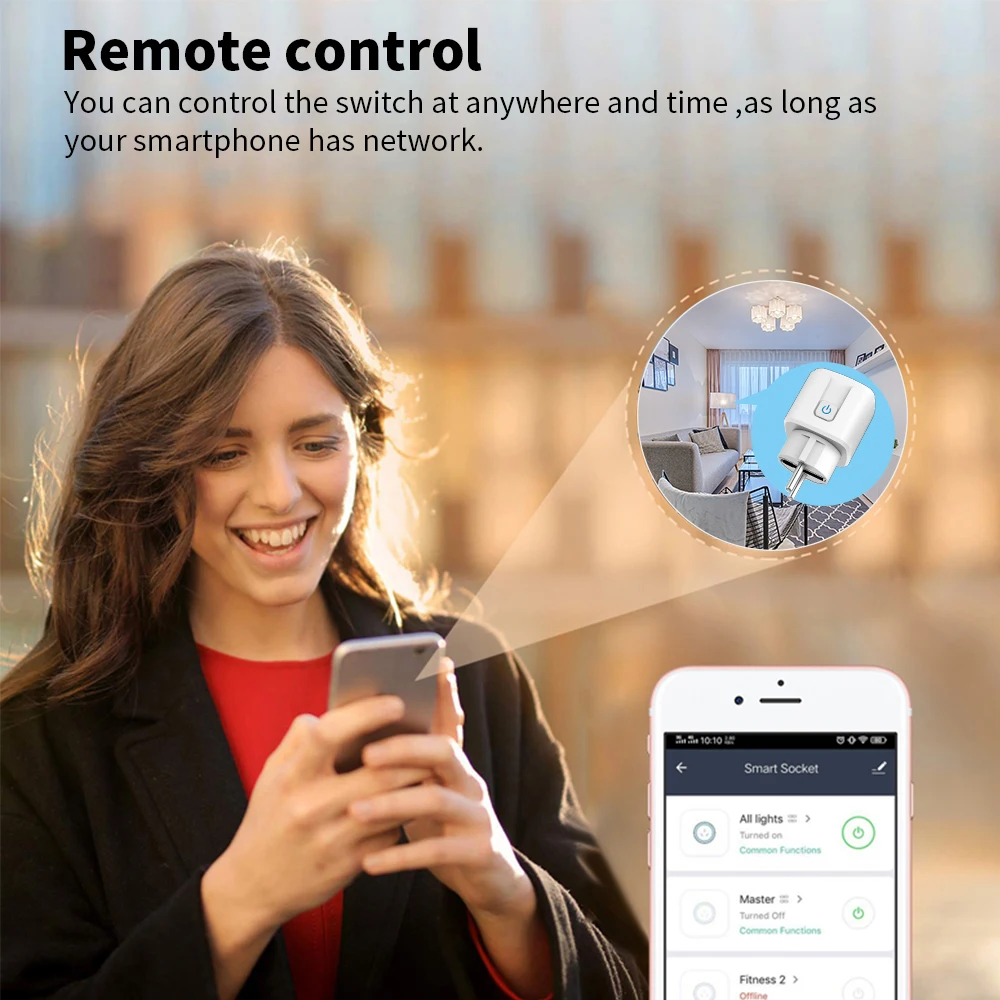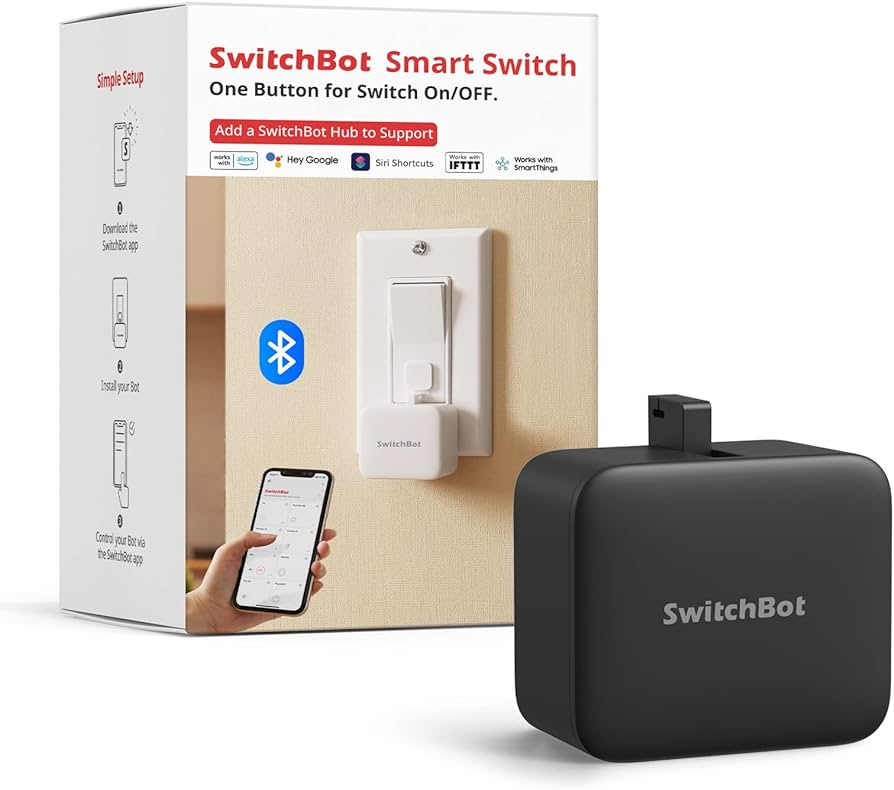Control house lights remotely using smart switches instead of smart bulbs to ensure seamless integration with physical switches and smart apps. Smart switches allow you to remotely control the lights from your phone while still being able to use the physical switch.
Other options include smart plugs and cloud-connected switches, which provide convenience and can be easily set up without breaking the bank. By installing a smart switch and adding a remote control in a second location, you can control the lights from multiple points within your home.
Additionally, smart lighting systems offer the flexibility to schedule lights to turn on and off, adding an extra layer of security when you’re away from home. Whether it’s through an app, wireless remote, or voice commands with smart home assistants, controlling your house lights remotely provides a convenient and efficient way to manage your home’s lighting.
Introduction To Controlling House Lights Remotely
Controlling house lights remotely has become increasingly popular and advantageous for homeowners. One option for remote lighting control is using smart switches. Unlike smart bulbs, which require a constant connection to your home network, smart switches provide the convenience of both physical and app control. This means that even if you turn off the smart bulb from a physical switch, you can still control it remotely using the smart app.
Smart switches also offer flexibility by allowing you to control multiple connected lights at once. By installing one smart switch and adding a remote control in another location, you can easily control the lights throughout your home. This makes smart switches a convenient and cost-effective choice for remote lighting control.
In addition to smart switches, there are also smart plugs available. These plugs are simple to set up and allow you to plug in your existing lights for remote control. Brands like Kasa, Leviton, and Wyze offer user-friendly options at reasonable prices.
Overall, whether you choose smart switches or smart plugs, controlling your house lights remotely can enhance convenience, security, and energy efficiency in your home.
- Smart switches allow for physical and app control
- Easier to control multiple lights at once
- Smart plugs provide a simple solution for existing lights
- Enhanced convenience, security, and energy efficiency

Credit: s.click.aliexpress.com
Smart Bulbs Vs. Smart Switches: Which Is The Better Option?
When it comes to controlling house lights remotely, you have two main options: smart bulbs or smart switches. Understanding the difference between the two can help you make an informed decision.
Smart bulbs, as the name suggests, are light bulbs that connect to your home network and can be controlled via a mobile app or voice assistant. They offer flexibility in terms of color options and can create dynamic lighting effects. However, they require a stable Wi-Fi connection and can be expensive compared to traditional light bulbs. Additionally, if you turn off the smart bulb from a physical switch, it will be disconnected from your home network.
On the other hand, smart switches replace your existing light switches and can be controlled both manually and through a mobile app. They allow you to continue using the physical switch while providing remote control capabilities. Smart switches are more cost-effective compared to smart bulbs, but they don’t offer the same color customization options.
In conclusion, smart switches are our recommended option for controlling house lights remotely as they provide the convenience of remote control while still allowing the use of physical switches. However, it’s worth considering the specific needs and preferences of your home before making a decision.
Why Smart Switches Are The Recommended Choice
When it comes to controlling house lights remotely, smart switches are the recommended choice. Unlike smart bulbs, they allow you to use the physical switch along with the smart app, ensuring a seamless experience.
Controlling House Lights Remotely
Why Smart Switches are the Recommended Choice
The advantage of using physical switches with smart apps:
– Smart switches allow you to continue using the physical switch in conjunction with the smart app, providing a seamless user experience.
– Unlike smart bulbs, which can face network disconnection issues when turned off from a physical fixture or switch, smart switches maintain connectivity.
– Smart switches provide more control and flexibility, as you can install them in multiple locations and remotely control the lights from anywhere using a smartphone or tablet.
– With smart switches, you can schedule lights to turn on and off, enhancing security by creating the illusion of occupancy while away from home.
– Smart switches can be integrated with voice assistants like Alexa or Google Assistant, allowing convenient control through voice commands.
In conclusion, smart switches are the recommended choice for controlling house lights remotely due to their ability to retain network connectivity, provide flexibility, and integrate with other smart devices.
Installing And Setting Up Smart Switches For Remote Lighting Control
Gain control over your house lights remotely with the installation and setup of smart switches. Unlike smart bulbs, smart switches allow you to continue using the physical switch alongside the convenience of a smart app for seamless lighting control. Simplify and enhance your home lighting experience effortlessly.
Controlling House Lights Remotely
Installing and Setting Up Smart Switches for Remote Lighting Control
To control house lights remotely, there are two popular options to consider: smart bulbs or smart switches. While smart bulbs can be a convenient choice, using smart switches is recommended for a seamless experience. With smart switches, you can still use the physical switch while controlling the lights remotely through a smart app. This means that even if you turn off the smart bulb from a physical fixture or switch, it will remain connected to your home network. Some popular brands and models of smart switches include Kasa, Leviton, and Wyze. These switches are easy to set up and offer various features at reasonable costs.
When installing smart switches, follow a step-by-step guide to ensure a successful installation. Additionally, set up the remote control functionality for your smart switches to enable remote access from your phone or other devices. This feature allows you to turn on or off the lights in your house even when you are away, adding convenience and security to your home.
With the right smart switches and proper setup, you can easily control your house lights remotely and enjoy a well-lit and connected home.
Integrating Smart Switches Into A Smart Home System
Integrating smart switches into a smart home system is an efficient way to control house lights remotely. Smart switches offer the advantage of allowing you to continue using the physical switch alongside smartphone apps. Unlike smart bulbs, which can disconnect from the home network when turned off physically, smart switches enable seamless integration between physical switches and smart apps.
In addition to controlling lights remotely via smartphone apps, smart switches can be easily integrated with other smart home devices. They can leverage voice assistants like Alexa or Google Assistant for hands-free lighting control. With the help of these voice assistants, you can simply give commands to turn on or off lights, set brightness levels, or schedule lighting routines even when you’re away from home.
Enhancing Home Security With Smart Switches
Enhancing home security with smart switches allows for convenient control of house lights remotely. Whether you are away from home or simply want to create a well-lit and secure ambiance, smart switches offer a range of features to meet your needs.
Scheduling lights to turn on/off automatically when away from home ensures the appearance of occupancy, deterring potential intruders. By simulating occupancy with smart switches, you can create a sense of activity even when you’re not there.
In addition to scheduling, smart switches also allow you to create lighting routines for a well-lit and secure home. This means you can program your lights to turn on and off at specific times, creating a more vibrant and secure atmosphere.
With the ability to control lights remotely via an app or wireless remote, smart switches provide convenience and peace of mind. Plus, they can integrate with other smart home devices for a seamless home automation experience.
Frequently Asked Questions On Controlling House Lights Remotely
Can I Control My Lights With My Phone?
Yes, you can control your lights with your phone using smart bulbs or smart switches. Smart switches are recommended as they allow you to use the physical switch with the smart app. You can also use smart plugs to control your existing lights.
Simply plug your lights into the smart plug and control them remotely through an app.
Can I Control My Smart Light From Anywhere?
Yes, you can control your smart light from anywhere using your smartphone or a smart home system. Smart light bulbs utilize wireless communication technologies such as Wi-Fi, Bluetooth, or Zigbee to connect to your device, allowing you to control them remotely through a mobile app or voice assistant.
How Do You Turn On A Light When Not Home?
To turn on a light when you’re not home, you have two options: smart bulbs or smart switches. Smart switches are recommended as they allow you to use the physical switch along with the smart app. Simply plug your existing lights into a smart plug or install a smart switch for remote control.
You can also use smart home integration or apps to control your lights from anywhere using your phone.
How Do You Automate Lights In A House?
Automating lights in a house can be done through smart bulbs or smart switches. Smart switches are recommended as they allow you to use the physical switch with the smart app, ensuring the bulb stays connected to your home network even if turned off from the physical fixture or switch.
You can also use smart plugs to remotely control existing lights. These options offer convenience and can be easily set up at a reasonable cost.
Conclusion
To control your house lights remotely, you have two options: smart bulbs or smart switches. Our recommendation is to go with smart switches because they allow you to use the physical switch along with the smart app. This means that even if you turn off the smart bulb from the physical switch, it stays connected to your home network.
Smart switches are easy to set up and cost-effective, making them the perfect choice for controlling lights from your phone. With the ability to schedule on/off times and integrate with other smart home systems, controlling your house lights remotely has never been easier.

